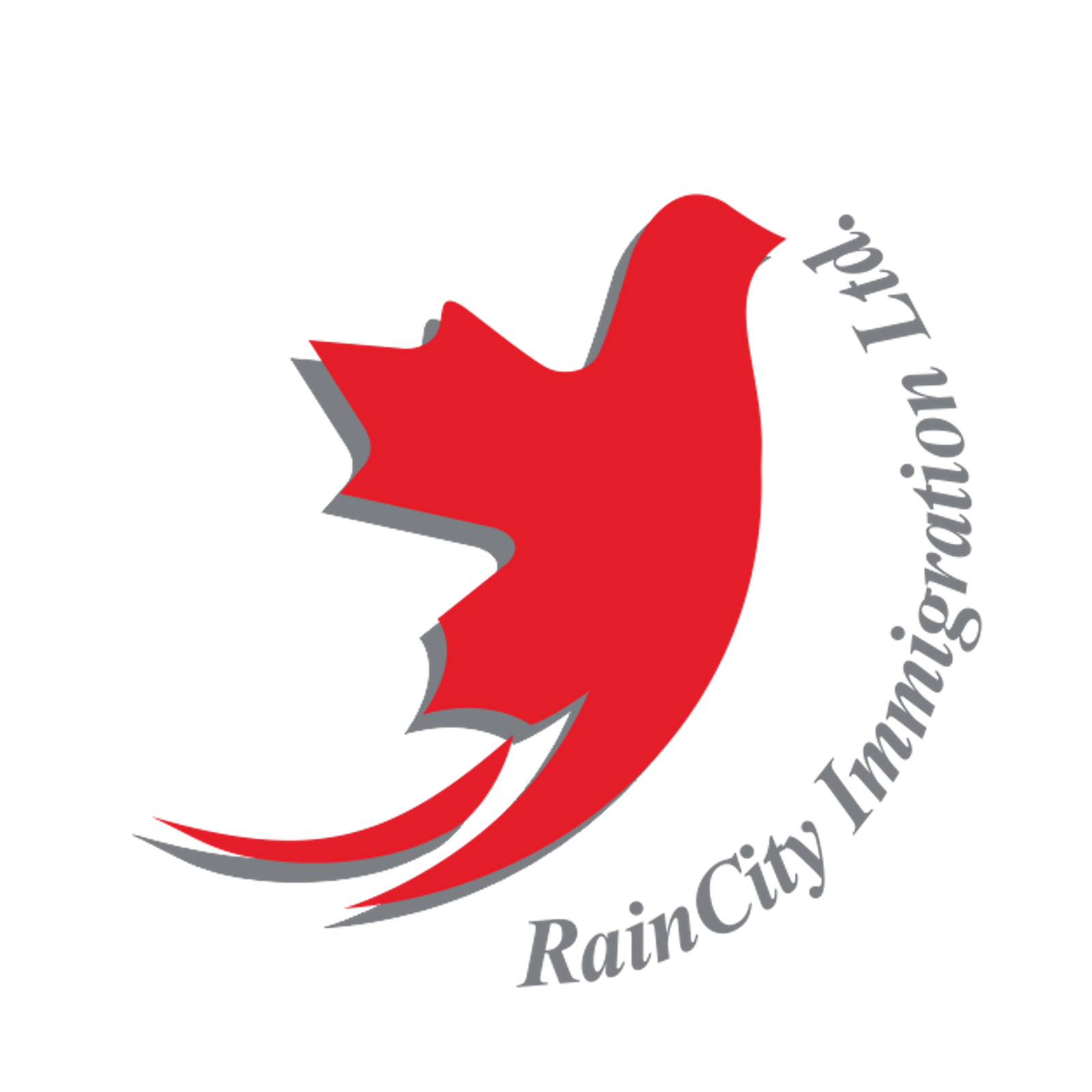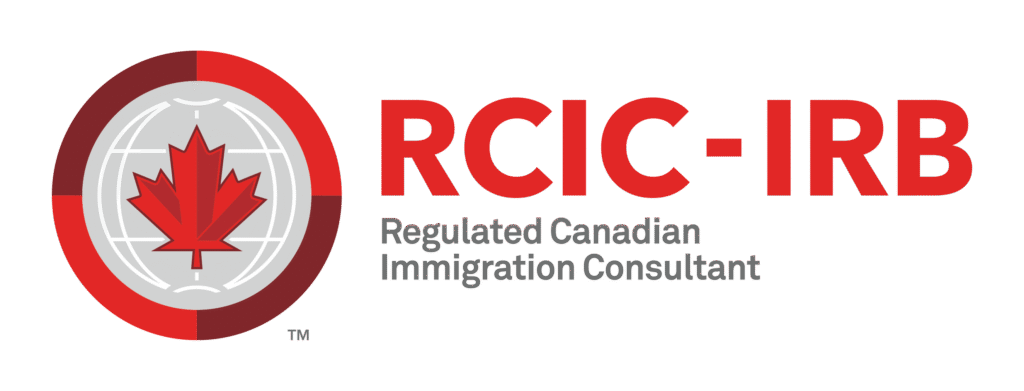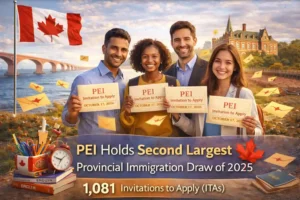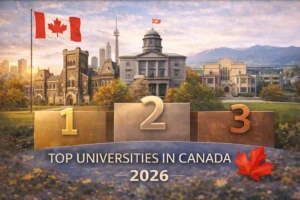Canadian sponsorship visa
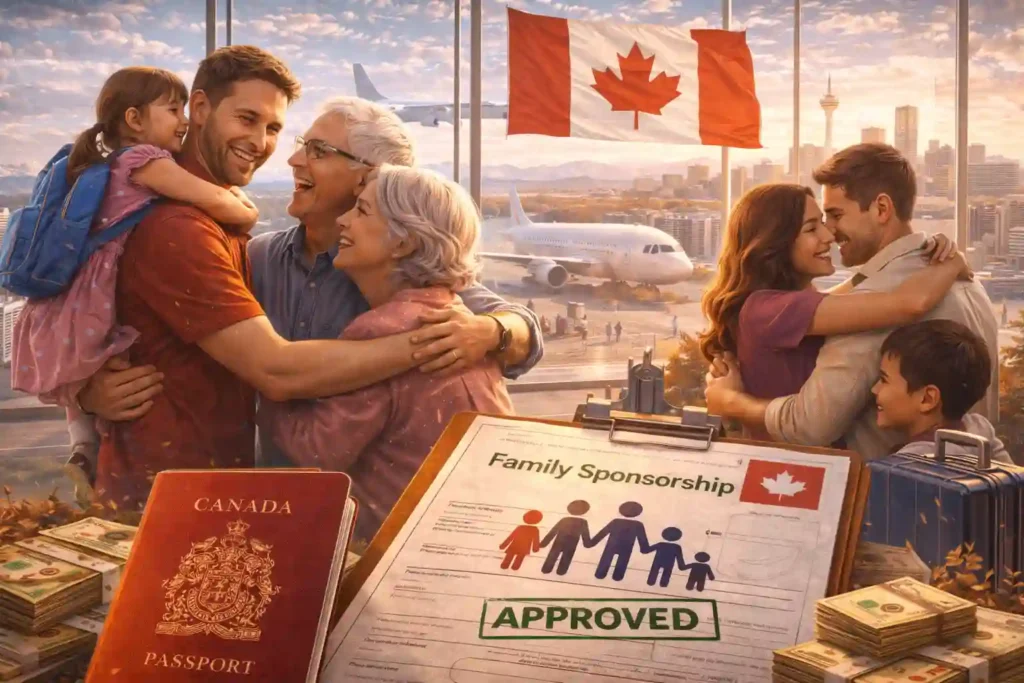
If you are a resident or citizen of Canada and over 18 years old, you can bring certain individuals to Canada under a sponsorship visa, and they can also get permanent residency in Canada.
The Canadian sponsorship visa falls under the family class visas and includes the following:
– Spousal sponsorship
– Sponsoring parents and grandparents
– Sponsoring dependent children (including adopted children)
– Sponsoring other eligible individuals
Any of these sponsored individuals can live, study, or work in Canada, and the sponsor commits to covering their food, clothing, and housing costs for a specified period by signing a contract, also known as an undertaking. In part of this pledge, you guarantee that the sponsored individual will not apply for government assistance, and if they do, you will be obligated to repay the government. If you are in provinces other than Quebec, this contract is with IRCC (Immigration, Refugees and Citizenship Canada), and if you are in Quebec, it will be with MIDI (Ministère de l’Immigration, de la Francisation, et de l’Intégration). A separate agreement must also be signed between the sponsor and the sponsored individual to ensure that both parties understand their responsibilities.
Please note that the Canadian sponsorship visa is different from the temporary super visa for Canada.
If you meet any of the following conditions, you may not be able to sponsor a new individual:
– If you have previously made a commitment and did not fulfill it, you will not be able to sponsor a new individual.
– If a court has ruled that you failed to pay alimony or child support, you might not be able to sponsor a new individual.
– If you have committed a crime related to family or sexual matters, depending on the nature of the crime, it could prevent you from sponsoring someone else.
– If you have requested assistance from the government for reasons other than disability. (Loans and government scholarships will not be a problem; here, “assistance” refers specifically to welfare. This means that if you have received assistance other than welfare from the government, it will not affect your sponsorship application.)
If you have previously sponsored someone and they requested financial assistance from the government after arriving in Canada, you may not be able to sponsor another person. In this case, the government will demand repayment of all financial aid given to the sponsored individual from the sponsor.
Spousal Sponsorship Visa
The aim of this program is to unite family members in Canada. It allows residents or citizens of Canada to bring their spouse or partner (someone they have lived with for a year or more) to Canada.
The Immigration Office must verify the conditions of both the sponsor and the sponsored individual for this visa to be granted.
To obtain a visa through this method, the sponsor and the sponsored individual must prove that they fall into one of the following categories:
Spouse
Common-law Partner
Conjugal Partner
Additionally, Canada accepts all three situations for same-sex couples as well.
Requirements for sponsoring a spouse
Requirements for the sponsor
Must be at least 18 years old.
Must be a resident living in Canada or a citizen and must live in Canada at the time of sponsorship. If the sponsor does not live in Canada, they must be residing in Canada at the time the permanent residency is issued for the sponsored individual (in the case of a spouse and child).
Cannot be imprisoned, bankrupt, have committed a serious crime, or have received a deportation order from Canada.
Must commit to covering the initial living expenses of the sponsored individual for three years. This commitment is unconditional.
Must not have sponsored another individual in the past three years.
Requirements for the sponsored individual
Must be at least 18 years old.
Must not have a criminal record.
Must undergo medical examinations.
Must prove the authenticity of the relationship and that the marriage was not solely for the sake of obtaining permanent residency in Canada.
Requirements for the relationship between individuals
You need to prove that you fit into one of the following categories:
Spouse: This means that two people are officially married. Marriages outside of Canada need to be recognized both under Canadian law and the laws of the country where you got married, with the relevant documentation provided. Same-sex marriages are accepted if they took place in Canada, but if they occurred outside of Canada, they are not recognized and can only fall under one of the two relationship types we describe below.
Common-law partner: The individuals must have lived together for at least one year.
Conjugal partner: This type of relationship can exist between a man and a woman or between similar genders. The sponsor is considered part of this category if:
The parties have been unable to live together for valid reasons (like immigration issues or legal problems related to divorce restrictions or lack of recognition for same-sex relationships in certain countries).
The parties have had a mutual dependent relationship that has lasted at least one year, and they have a commitment to each other similar to that of marriage or common-law partners. This can be proven by showing shared items like bank accounts or joint ownership.
What situations make sponsorship prohibited and unacceptable?
One of the partners is under 18. If either or both are under 18, they must wait until they turn 18.
The marriage is not genuine and was conducted for the purpose of sponsorship.
If the couple separates after sponsorship, the sponsoring individual cannot sponsor a new partner for 3 years, and the sponsored individual cannot sponsor a new partner for 5 years.
The marriage must be recognized and legal both in Canada and the country of origin. (In specific cases where a type of marriage is not recognized in the country of origin, sponsorship may be possible.) (If the marriage is accepted in the country of origin but not in Canada, it won’t qualify for sponsorship).
Marriage conducted long-distance is not accepted. (with Canadian soldiers).
Undeclared spouse when applying for immigration. If you do not declare your spouse when starting the application, you will never be able to sponsor that individual.
Difference between Inland and Outland sponsorship.
If your spouse lives outside Canada, you are considered an outland applicant. In this case, you can live with your spouse while your application is being processed, and once it’s finally approved, both of you can travel to Canada.
If your spouse lives with you in Canada, you are considered an inland applicant. In this process, your spouse can apply for a work permit.
What happens after you submit the spousal sponsorship application?
The review of your application starts once it is submitted completely. If there are any missing documents, your application will be sent back to you.
Once a complete application is received, the standard processing time is about 12 months, which includes two or three months of waiting for immigration to check for any missing information.
While your application is being reviewed, your spouse has 30 days to complete biometrics and medical exams. An interview may also be requested.
Fortunately, Canada has recently announced an increase in its capacity to process family sponsorship applications.
Rules after spousal sponsorship in Canada
The sponsor is financially responsible for supporting the sponsored individual for up to three years after obtaining permanent residency.
After sponsoring their spouse, the sponsor cannot sponsor another spouse for five years in the case of separation.
Additionally, if the couple has lived together for two years or less and has no children, they must live together for another two years after residency is granted; otherwise, the sponsored individual’s permanent residency may be revoked. This does not apply to sponsored individuals who have been abused or mistreated.
Suspension of sponsorship
If the sponsor commits a crime that carries a sentence of up to 10 years in prison.
If the sponsor becomes inadmissible to enter Canada.
If the sponsor loses their Canadian passport under certain conditions.
If the sponsor is in a situation where immigration issues a letter of inadmissibility due to security, human rights, or planned crimes.
Cancellation of spousal sponsorship
The option to cancel a spousal sponsorship only exists if the sponsored individual hasn’t received their residence card yet. In this case, the sponsor can submit their request by completing an online form. If the sponsorship is canceled after the permanent residency has been issued, the sponsor must fulfill all obligations for a full 3 years.
Work or study of the sponsored person
The sponsored person must maintain their immigration status while waiting for permanent residency through sponsorship. They are not allowed to work or study without a visa and must apply for one if they wish to do so. Exception: If the applicant already has a study or work visa, it will not be canceled, and they can continue to stay legally until that visa expires.
Parent sponsorship visa
Currently, for sponsoring parents and grandparents, applicants must register in the waiting system and wait to receive an invitation to apply from the immigration office. If they receive an invitation, they will have 90 days to submit a complete sponsorship application. If they don’t act on the invitation letter this year, they will receive a letter requesting them to express their intention to sponsor their parents the following year to keep their file active.
Those who wish to bring their parents or grandparents to Canada must either have permanent residency in Canada, be Canadian citizens, or have First Nations status in Canada. Furthermore, they must be over 18 years old and have the financial means to support the family members they intend to sponsor. Sponsors must demonstrate that they have enough income to support themselves and all family members for whom they are financially responsible. Therefore, it’s a good idea for applicants to do some rough calculations before submitting their requests to see if they have enough funds to financially support their beloved parents or grandparents.
Requirements for the sponsoring individual
You must be the child or grandchild of the sponsored individual.
You must be over 18 years old.
You need to provide a written commitment to support them financially for 20 years (if they require financial assistance, you will be responsible).
You must have a minimum income. The minimum income should be LICO + 30% of that. This income is assessed over the three years leading up to the sponsorship application. The couple’s income can be combined.
Requirements for the sponsored individual
You must be the parents or grandparents of the sponsor.
You must have the right to enter Canada as a visitor.
You need to provide proof of purchasing health insurance for one year in Canada.
You must undergo a medical examination by the immigration office.
Please note that the commitment you sign is unconditional, and you will be responsible if any issues arise. If both spouses have signed the agreement and separate after the parents arrive, they are still both bound by the terms of the agreement. If any of the sponsors wish to retract the sponsorship application, they must do so before permanent residency or the PR card is issued.
Who cannot sponsor their parents?
Individuals who have debts to the government.
Individuals who are receiving government assistance (welfare) and are not physically disabled.
Individuals who have committed serious crimes against a first-degree relative.
Individuals who are in prison or have a warrant issued against them.
Individuals who have not met the minimum income requirement (LICO + 30%) in the three years leading up to the sponsorship.
Dependent child sponsorship visa.
Requirements for the sponsoring individual
Must be at least 18 years old.
Must be a resident or citizen of Canada and live in Canada at the time of sponsorship.
Must not be in prison, bankrupt, or have received a departure letter from Canada.
Financial commitment is required for children for a period of 10 years after the sponsored individual obtains permanent residency or until they turn 25 (whichever comes first).
Requirements for the sponsored individual
You must be 19 years old or younger and single (or)
before turning 19, you must have been a full-time student and completely financially dependent on your parents (or)
be over 19 years old (and) – have gotten married before turning 19 (and) have been a full-time student before turning 19 (and) since the marriage, been completely financially dependent on your parents
be over 19 years old (and) have been completely financially dependent on your parents before turning 19 (and) due to physical or mental conditions, unable to support your financial independence.
Requirements for the relationship between the parties.
The sponsored individual must be the biological child of the parents if the child has been adopted by someone other than their spouse (or) must be the adopted child of the parents.
Minimum Necessary Income for Canada Sponsorship
One of the key factors in being able to sponsor your parents is the Minimum Necessary Income (MNI). After you express your intention to sponsor through the online form, you need to prove that you meet a certain minimum income requirement. However, applications from selected candidates who are invited to submit their application will be rejected if they do not meet the essential condition of minimum necessary income. Sponsors living outside the province of Quebec who are invited to apply must provide a tax audit statement from the Canada Revenue Agency (CRA) for each of the three tax years immediately preceding the date of their application.
The Canadian immigration department has noted that since it is likely to receive a large number of applications in January and February 2021, sponsors must meet the income criteria for the years 2020, 2019, and 2018. Immigration officials have stated that sponsors can submit their 2020 tax audit statement after applying for sponsorship.
Applicants interested in sponsoring their parents or grandparents must also declare the size and number of their family members to confirm they meet the minimum necessary income requirement. The number of individuals for whom financial responsibility may be held includes the following:
The sponsor themselves and the applicant
Their spouse
Their dependent children
Their spouse’s dependent children
Any other individual the sponsor may have previously sponsored and still holds financial responsibility for
The parents and grandparents the applicant intends to sponsor along with their dependents (spouse or children)
Father’s/grandmother’s spouse or father’s spouse or mother’s spouse, even if they are not coming to Canada
Divorced spouse of father/grandmother or divorced spouse of father or mother
